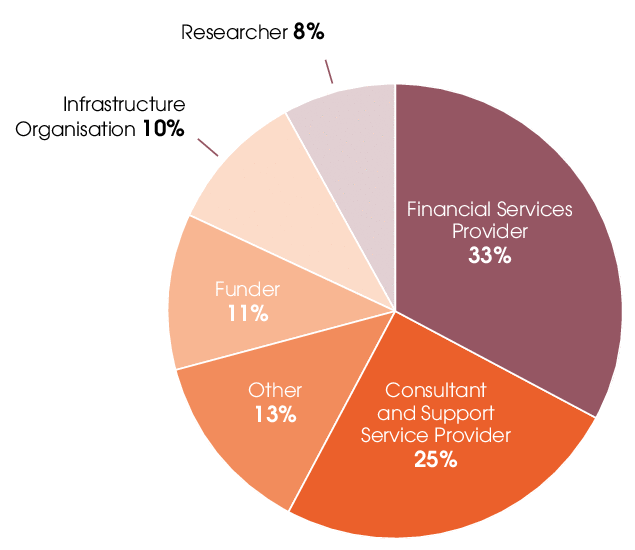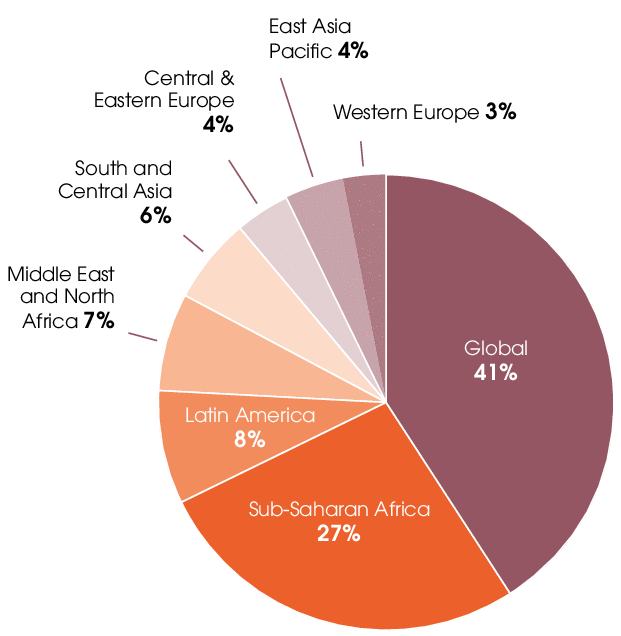The European Microfinance Platform (e-MFP) has published the COVID-19 Financial Inclusion Compass, a special edition of the Compass series specifically focused on the current challenges, medium-term priorities, concerns, opportunities and forecasts for a sector facing probably the greatest crisis in its modern history.
European Microfinance Platform (e-MFP) has published the COVID-19 Financial Inclusion Compass, a special edition of the Compass series specifically focused on the current challenges, medium-term priorities, concerns, opportunities and forecasts for a sector facing probably the greatest crisis in its modern history.
The world – the financial inclusion sector included – is in the midst of twin crises: (1) a novel and highly contagious virus with no vaccine or cure that shows no signs of abating; and (2) a genuinely global recession as a result of the unavoidable containment measures put in place. The situation is uncertain and dynamic. Six months from now, the landscape will surely be unrecognisable from today.
Since 2018, e-MFP has published an annual Financial Inclusion Compass – a cross-sector, mixed-methodology survey looking at current trends, new areas of focus and sector stakeholders’ perceptions of challenges and opportunities. Clearly, though, these are different times. The impact of the pandemic on the sector is profound – even existential. With this in mind, e-MFP decided to re-purpose this year’s survey for this critical moment, to ask: How severe are the various challenges facing different stakeholder groups? What should be the priorities of the sector in the medium-term (both to recover from this crisis and put in place measures to mitigate the next)? And how will this year transform the sector – for better or worse?
About the “COVID” Compass
The COVID-19 Financial Inclusion Compass survey was open for two weeks in June 2020, and was available in English, Spanish and French. The survey had two sections, with the first section having two parts. In Section 1A, respondents were asked to score various challenges facing different stakeholder groups on a severity scale of 1 to 10 (or “I don’t know”). In Section 1B, respondents were asked to rate the importance of various medium-term priorities for different stakeholder groups (again, with options of 1 to 10 plus “I don’t know”) and offer comments. Section 2 was entirely optional and involved three open-ended questions on concerns, opportunities and forecasts.
There were 108 complete responses to the COVID-19 Financial Inclusion Compass from 44 different countries. The first pie chart below shows the distribution of respondents by stakeholder category, and the second shows the primary geographical region of focus.

Distribution of Respondents by Primary Geographical Region of Focus
The following table shows the top three current challenges facing different stakeholder groups, as rated by all respondents.

The final table shows what the top three priorities should be for different stakeholder groups in the next 6 to 12 months, as rated by all respondents.

All the scores in Section 1 on Challenges and Priorities were disaggregated by respondent type too, revealing interesting variations in perspectives. Respondents provided hundreds of comments as well and expanded upon them in the open-ended questions of Section 2.
What do stakeholders think?
The COVID-19 Financial Inclusion Compass reveals a sector that is highly anxious about the consequences of the pandemic – and especially the economic downturn – on liquidity-starved providers; investors; and, most of all, clients. There is palpable concern that this crisis may be the death-knell for the sector, undoing decades of progress.
There are concerns about maintaining client protection among the FSPs that survive; concerns about the continued uncertainty from macroeconomic trends and their effects on trade, tourism, transport and prices; concerns about the future responses needed from investors, regulators and providers; and indeed about the uncertainty surrounding the lethality and endurance of the coronavirus itself.
But there are glimmers of hope, too. There is a genuine sense among survey respondents that once the acute crisis brought about by economic shutdowns passes, there are opportunities to make changes that the gravitational pull of the status quo would never allow in more normal times. There has been unprecedented collaboration and cooperation among sector stakeholders these past months – perhaps heralding a permanent new approach. Innovations may be catalysed, especially in the use of technology that genuinely improves clients’ access to valuable products and services. New resilience can be built in to better face future challenges. And, more nebulous but no less important, there is the opportunity for a re-think about the sector’s purpose. Can we, once this is all over, “build back better”?
Overall, if there is agreement on one point at all throughout the Compass survey, it is that COVID-19 will profoundly change the entire business of financial inclusion. The sector remains in the relatively early days of the crisis. There will undoubtedly be insolvency among providers. Possibly millions of small businesses likewise will not recover. Donor largesse from advanced economies may retreat, as those governments feel they have to take care of their own first. And aside from the consequences of the global economic shutdown, the coronavirus itself continues. It may be years until we are rid of it. It may recur, leading to cycles of economic standstill and misery.
The COVID-19 Financial Inclusion Compass and previous editions of the Compass are available on e-MFP’s website, including a webinar held on July 13 to present pre-publication findings. We hope that this resource serves as a valuable compass for all stakeholders in the financial inclusion sector as they seek to navigate beyond this crisis to better times ahead.
Sam Mendelson is a Financial Inclusion Specialist at e-MFP and the lead author of the Compass series.
This notice is part of a sponsored series on European Microfinance Week. This event is held annually by the European Microfinance Platform (e-MFP), a Luxembourg-based network with approximately 130 members. MicroCapital has been engaged to cover the event on-site each year since 2012.
Sources and Additional Resources
European Microfinance Platform (e-MFP) Action Groups
http://www.e-mfp.eu/action-groups
European Microfinance Award
http://www.e-mfp.eu/award
MicroCapital coverage since 2012 of European Microfinance Week, including each European Microfinance Award
https://www.microcapital.org/category/european-microfinance-week/
Similar Posts:
- MICROFINANCE PAPER WRAP-UP: “The Financial Inclusion Compass 2022,” by Sam Mendelson, Published by e-MFP
- MICROFINANCE EVENT: European Microfinance Week; November 15-17, 2023; Luxembourg
- MICROFINANCE EVENT: Financial Inclusion That Works for Women; March 2, 2023; London, UK
- SPECIAL REPORT: Yikri of Burkina Faso Wins $110k European Microfinance Award for Progress Toward Food Security #EMW2023
- SPECIAL REPORT: e-MFP Launches the Green Map, a Pioneering Resource to Address an Information Gap in Green Inclusive Finance
